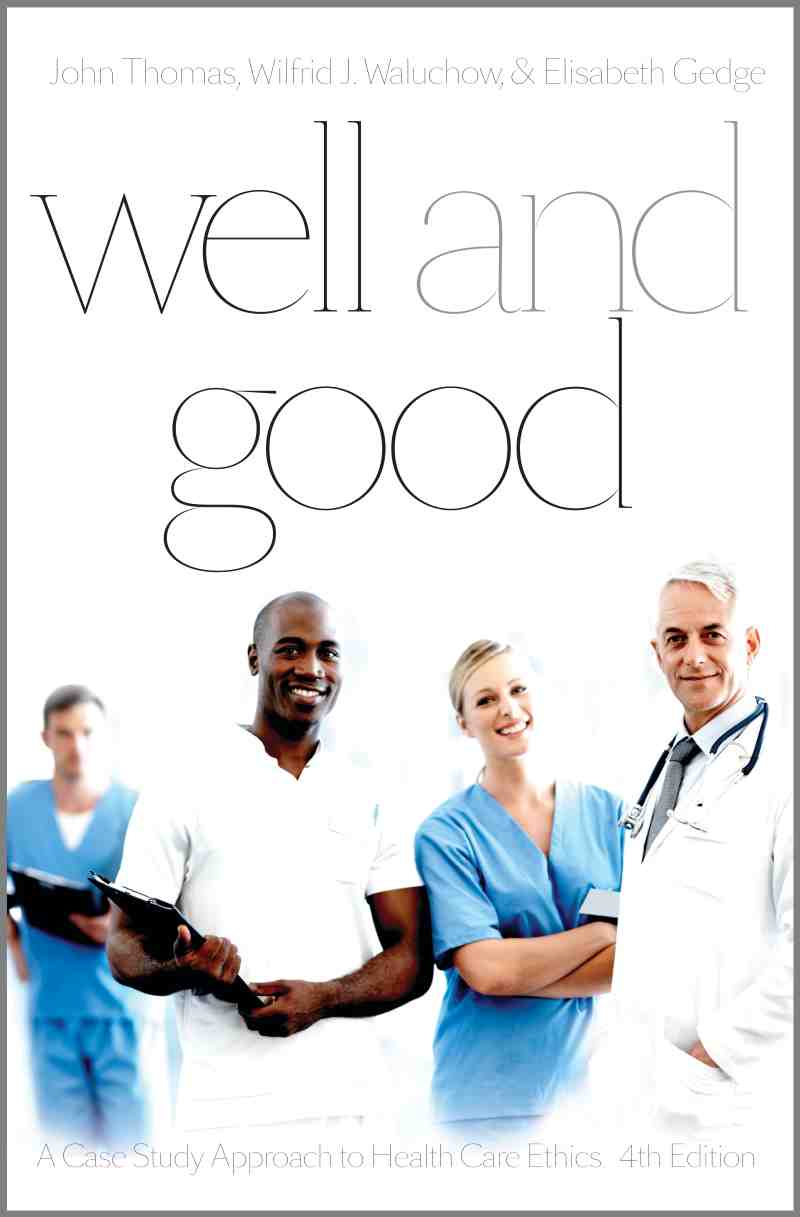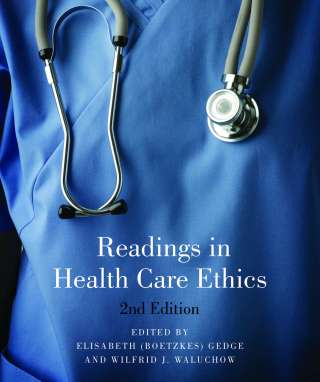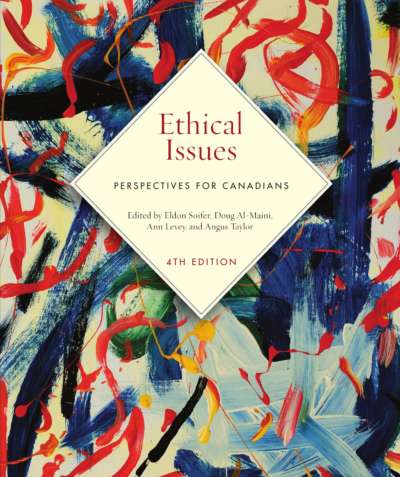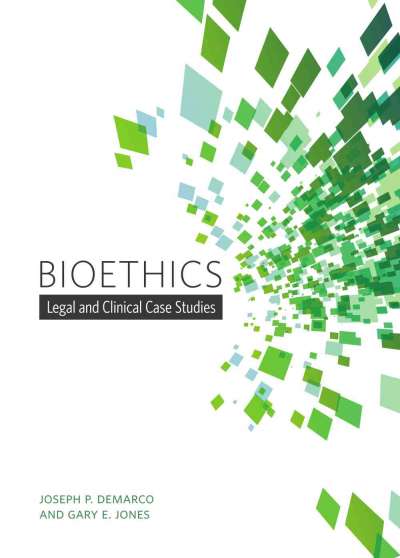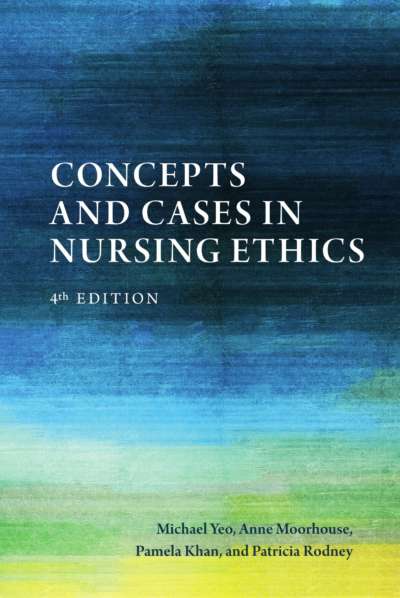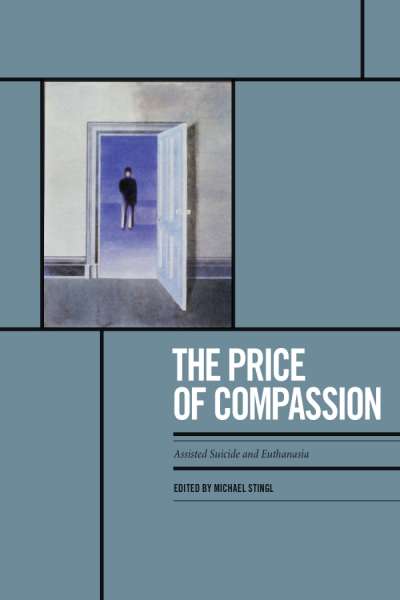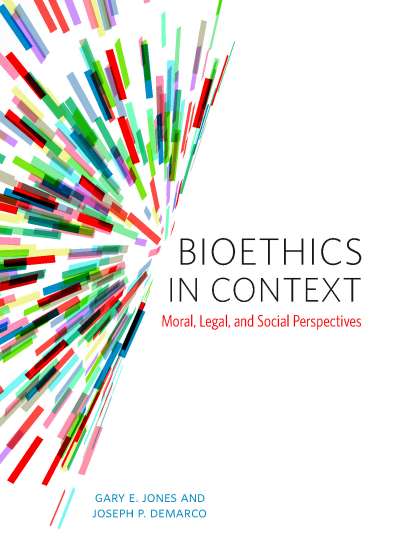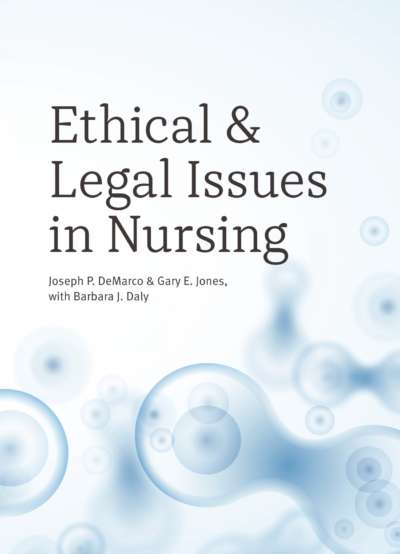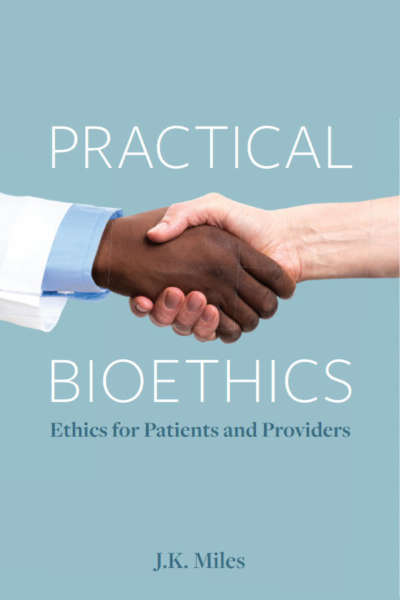This book focuses on Canadian health care ethics; if you’re looking for a health care ethics text with an American focus, you might want to consider Bioethics in Context or Bioethics: Legal and Clinical Case Studies.
Well and Good presents a combination of classic and little-known cases in health care ethics. These cases, accompanied by information about the major ethical theories, give students a chance to grapple with the ethical challenges faced by health care practitioners, policy makers, and recipients. The authors’ narrative style and leading questions provoke interest and engagement, while allowing readers to work through complicated issues for themselves. This fourth edition includes an expanded discussion of feminist ethics, as well as new cases addressing pandemic ethics, humanitarian aid, the social determinants of health, research and Aboriginal communities, and a number of other emerging issues.
Well and Good can be used on its own, or packaged with Readings in Health Care Ethics for a discounted price. Please contact customerservice@broadviewpress.com for more information.
Comments
“Perhaps the best text of its kind for undergraduate courses in Health Care Ethics and Health Science programs. It requires no previous knowledge of philosophy, is full of relevant and interesting case studies, and contains the most up-to-date information concerning health law and precedent-setting cases in a Canadian context. Maybe best of all, it’s sure to prove a powerful generator of class discussion.” — David C. Flagel, University of New Brunswick
“This new and improved edition of Well and Good offers an impressive selection of cases on a broad range of topics. An outstanding resource.” — David Rondel, University of Nevada, Reno
Comments on previous editions
“… superb … wide in scope but concrete in the way it grapples with these problems. It illuminates both the moral and the technical aspects of the field.” — Daniel Callahan, Hastings Center
“There are so few books like this … very helpful in showing how ethical theory can be applied in real life.” — Mary Bockover, University of California, Santa Barbara
“Well and Good covers a diverse range of issues using medically detailed cases. I particularly like how it addresses clinic and home settings as well as hospitals.” — Connie Perry, Allegheny University of the Health Sciences
Preface to the Fourth Edition
Acknowledgements
Introduction: Ethical Resources for Decision-Making
- Moral Philosophy
- Morality versus Ethics
- Levels of Moral Response
- A Variety of Perspectives
- Some Basic Concepts
- Five Types of Ethical Theory: Mill, Kant, Ross, Aristotle, and Feminist Perspectives
- The Language of Rights
- Concluding Thoughts
Chapter One: Relationships in Health Care
- When Physicians and Family Disagree
- Prescribing Birth Control to Minors
- Nancy Olivieri, Bioethics, and Industry Funding
- Ol’ Joe Terminal Illness, Addictions, and Respect
- An “Over-the-Hill” Surgeon
Chapter Two: Health Care in Canada
- Budget Cutting in Neonatology and Perinatology
- Social Determinants of Health
- An Artificial Heart — Allocating Health Care Funding
- Canada’s Tainted Blood Scandal
Chapter Three: Consent
- Research Involving Alzheimer Patients
- Non-Consensual Electroconvulsive Shock Therapy
- Discontinuing Forced Feeding of an Anorexia Nervosa Patient
- Choosing Not to Vaccinate
- Religious Conflict over a Life-Saving Blood Transfusion
Chapter Four: Reproduction
- When a Couple Disagree over Abortion
- Caesarean for the Sake of the Fetus?
- The Legality and Morality of Contract (Surrogate) Pregnancy
- The Role of Chantal Daigle’s Boyfriend in Her Abortion Decision
- Fetal Tissue Transplantation
- Too Old to Have a Baby?
Chapter Five: Fetuses and Newborns
- Should Treatment Be Withheld from Patients with Severe Cognitive Disabilities?
- Sex Selection for Non-Medical Reasons
- Should Fetuses with “Milder Disabilities” Be Aborted?
- Protecting an “Unborn Child”
- Saviour Siblings
Chapter Six: Death, Dying, and Euthanasia
- Two Different Requests to Be Left to Die
- “Don’t Let My Mother Die”
- “Please Let Me Die”
- Sue Rodriguez: “Please Help Me to Die”
- Tracy and Robert Latimer: “It Was Right to Kill My
Daughter”
- Stephen Dawson: Should Severely Mentally Challenged
Patients Be Treated?
- The Brain Dead as Teaching Materials
Chapter Seven: Research Involving Human Participants
- Using Infants in Medical Research Projects
- Diagnosing and Treating Heart Disease in Women
- Who Owns the Research? The Case of the HeLa Cells
- Access to Experimental Drugs in Catastrophic Circumstances
- Pandemic Flu Ethics and Risk
Chapter Eight: Scarce Medical Resources and Catastrophic Circumstances
- Dialysis Machine Shortages: Who Shall Live?
- Ethics and Humanitarian Aid: Vertical Aid Programs
- Payment for Plasma
- Anencephalic Infants as Donors
- A Baboon Heart for Baby Fae
- Did Family Instability Justify Non-Treatment of Baby Jesse?
Chapter Nine: Genetics
- The Nuu chah nulth Nation and Arthritis Research
- Enhancement and Sport
- Genetic Testing and Disclosure
Chapter Ten: Unanalyzed Cases for Further Study
- Should Restraints Be Used to Correct Self-Destructive Behaviour?
- Breast Cancer While Pregnant
- Should Patients Be Informed of Remote Risks of Procedures?
- Minors as Organ Donors
- Failed Contraception, Genetic Disorders, and Parental Disagreement
- To Resuscitate or Not to Resuscitate?
- CPR and a Nurse’s Responsibility
- ”Don’t Start the Respirator”
- Queue-Jumping in the OR
- Allocation of ICU Beds
- Vaccination Allocation
- Genetic Screening and Family Disclosure
Index
The late John Thomas taught in the Department of Philosophy at McMaster University for over 30 years.
Wilfrid J. Waluchow is Professor of Philosophy and Senator William McMaster Chair in Constitutional Studies at McMaster University and Adjunct Professor at Osgoode Hall Law School.
Elisabeth Gedge is Chair of the Department of Philosophy at McMaster University.

